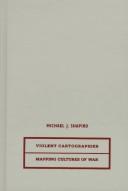| Listing 1 - 10 of 37 | << page >> |
Sort by
|
Book
ISBN: 0855207256 9780855207250 Year: 1984 Publisher: Oxford: Blackwell,
Abstract | Keywords | Export | Availability | Bookmark
 Loading...
Loading...Choose an application
- Reference Manager
- EndNote
- RefWorks (Direct export to RefWorks)
Language and languages --- Political aspects --- Philosophy --- Philosophy. --- Political aspects. --- Language and languages - Political aspects --- Language and languages - Philosophy
Book
ISBN: 0300025904 Year: 1981 Publisher: New Haven Yale University Press
Abstract | Keywords | Export | Availability | Bookmark
 Loading...
Loading...Choose an application
- Reference Manager
- EndNote
- RefWorks (Direct export to RefWorks)
Language and languages --- -Language and languages --- -Social sciences --- -Sociolinguistics --- #SBIB:309H1015 --- #SBIB:309H270 --- #SBIB:309H511 --- Language and society --- Society and language --- Sociology of language --- Language and culture --- Linguistics --- Sociology --- Integrational linguistics (Oxford school) --- Behavioral sciences --- Human sciences --- Sciences, Social --- Social science --- Social studies --- Civilization --- Foreign languages --- Languages --- Anthropology --- Communication --- Ethnology --- Information theory --- Meaning (Psychology) --- Philology --- Philosophy --- Political aspects --- Media: politieke, juridische, ethische, ideologische aspecten (incl. privacy) --- Politieke communicatie: algemene werken --- Verbale communicatie: algemene pragmatiek, stilistiek en teksttheorie, discoursanalyse --- Social aspects --- Sociological aspects --- Sociolinguistics. --- Social sciences --- Political aspects. --- Philosophy. --- Sociolinguistics --- Social philosophy --- Social theory --- Language and languages Political aspects

ISBN: 080394585X Year: 1993 Publisher: Newbury Park (Calif.) : Sage,
Abstract | Keywords | Export | Availability | Bookmark
 Loading...
Loading...Choose an application
- Reference Manager
- EndNote
- RefWorks (Direct export to RefWorks)
Economics --- Philosophy, Modern --- History --- Smith, Adam,

ISBN: 0816629218 081668796X Year: 1997 Publisher: Minneapolis : University of Minnesota Press,
Abstract | Keywords | Export | Availability | Bookmark
 Loading...
Loading...Choose an application
- Reference Manager
- EndNote
- RefWorks (Direct export to RefWorks)
An innovative critique of the way historians and political scientists study war. How can we resist a nation-state vision of the globe? What is needed to "unmap" the familiar world? In Violent Cartographies, Michael J. Shapiro considers these questions, exploring the significance of war in contemporary society and its connections to the geographical imaginary. Employing an ethnographic perspective, Shapiro uses whiplash reversals and bizarre juxtapositions to jolt readers out of conventional thinking about international relations and security studies. Considering the ideas of thinkers ranging from yon Clausewitz to Virilio, from Derrida to DeLillo, Shapiro distances readers from familiar political and strategic accounts of war and its causes. Shapiro uses literary and film analyses to elucidate his themes. For example, he considers such cultural artifacts as U.S. Marine recruiting television commercials, American war movies, and General Schwarzkopf's autobiography, elaborating how a certain image of American masculinity is played out in the military imaginary and in the media. Other topics are Melville's The Confidence Man, Bunuel's film That Obscure Object of Desire, and a comparison of the U.S. invasion of Grenada to an Aztec "flower war". Throughout, Shapiro draws attention to the violence of the colonial encounters through which many modern nation-states were formed, and ultimately suggests possible directions for an ethics of minimal violence in the encounter with others. The overall effect is of a complex, cumulative, and layered analysis of the historical and moral conditions of the current use of violence in the conduct of international relations. A fascinating and challenging work, Violent Cartographies will interest anyone concerned with the connections between war and culture.
War and civilization. --- War and society --- 815 Geschiedenis --- 820 Internationale Betrekkingen --- 826 Imperialisme, Kolonialisme --- 846.1 Etniciteit --- 855 Oorlogsvoering --- 858 Geweld --- 876 Veiligheidspolitiek --- 880 Regios en landen --- 882.4 Noord-Amerika --- 884.4 West-Europa --- 853 Regionale conflicten --- War and civilization --- Civilization and war --- Civilization
Book
ISBN: 9780415776356 041577635X 9780415776363 0415776368 9780203892008 0203892003 1134002076 1281837334 9786611837334 9781134002023 9781134002061 9781134002078 6611837337 9781281837332 Year: 2009 Volume: 7 Publisher: London ; New York : Routledge,
Abstract | Keywords | Export | Availability | Bookmark
 Loading...
Loading...Choose an application
- Reference Manager
- EndNote
- RefWorks (Direct export to RefWorks)
In recent years, film has been one of the major genres within which the imaginaries involved in mapping the geopolitical world have been represented and reflected upon. In this book, one of America's foremost theorists of culture and politics treats those aspects of the ""geopolitical aesthetic"" that must be addressed in light of both the post cold war and post 9/11 world and contemporary film theory and philosophy. Beginning with an account of his experience as a juror at film festival's, Michael J. Shapiro's Cinematic Geopolitics analyzes the ways in which film festival spa

ISBN: 0816638543 0816638535 Year: 2001 Publisher: Minneapolis University of Minnesota Press
Abstract | Keywords | Export | Availability | Bookmark
 Loading...
Loading...Choose an application
- Reference Manager
- EndNote
- RefWorks (Direct export to RefWorks)
Under the banner of family values, a war of more than words is being waged. At stake is the control of contemporary national culture - and the consciousness of succeeding generations. Michael J. Shapiro enters the fray with this galvanizing book, which exposes the assumptions, misconceptions, and historical inaccuracies that mark the neoconservative campaign to redeem an imagined past and colonize the present and future with a moral and political commitment to the "traditional family." (Publisher)
Culture in motion pictures. --- Families in literature. --- Families in motion pictures. --- Families --- Moral and ethical aspects. --- Political aspects. --- Culture in motion pictures --- Families in literature --- Families in motion pictures --- Family --- Family life --- Family relationships --- Family structure --- Relationships, Family --- Structure, Family --- Social institutions --- Birth order --- Domestic relations --- Home --- Households --- Kinship --- Marriage --- Matriarchy --- Parenthood --- Patriarchy --- Family in motion pictures --- Motion pictures --- Family in literature --- Moral and ethical aspects --- Political aspects --- Social aspects --- Social conditions

ISBN: 0415945313 1135943419 1280045728 0203503775 9780203503775 9780415945318 9780415945325 0415945321 9786610045723 6610045720 9781135943417 9781135943363 1135943362 9781135943400 1135943400 9781280045721 Year: 2004 Publisher: New York : Routledge,
Abstract | Keywords | Export | Availability | Bookmark
 Loading...
Loading...Choose an application
- Reference Manager
- EndNote
- RefWorks (Direct export to RefWorks)
Shapiro seeks to bring recognition to forms of political expression that have existed on the margins of the nationhood practices of states and the complicit nation-sustaining conceits of social science.
Postcolonialism and the arts. --- Arts and postcolonialism --- Arts
Book
ISBN: 0197670385 0197670377 0197670369 Year: 2023 Publisher: New York, New York : Oxford University Press,
Abstract | Keywords | Export | Availability | Bookmark
 Loading...
Loading...Choose an application
- Reference Manager
- EndNote
- RefWorks (Direct export to RefWorks)
Presuming that the problem of political equality, as it bears on both persons and assemblages, is about being accorded access to the material and symbolic resources needed to manage an effective civic presence, Michael J. Shapiro's critical interventions engage the way a wide variety of aesthetic genres address this problem. In Aesthetics of Equality, Shapiro offers a guide to aesthetic methods, focusing on how to conceive equality issues through conceptual engagements with diverse artistic genres. Emphasizing relationships between compositional form and ideational commitment, while focusing on the texts' protagonists (aesthetic subjects), the analyses include a wide variety of spaces and historical moments in scenes ranging from ancient Israel and Egypt in the Old Testament's Genesis to the ethno-histories of California and Texas, with attention on the right to urban space in such megacities as Paris, New York, Los Angeles, and Istanbul.
Equality. --- Equality in literature. --- Equality in mass media. --- Mass media --- Egalitarianism --- Inequality --- Social equality --- Social inequality --- Political science --- Sociology --- Democracy --- Liberty
Book
ISBN: 9781350164307 1350164305 Year: 2021 Publisher: London: Bloomsbury,
Abstract | Keywords | Export | Availability | Bookmark
 Loading...
Loading...Choose an application
- Reference Manager
- EndNote
- RefWorks (Direct export to RefWorks)
"In The Phenomenology of Religious Belief, the renowned philosopher Michael J. Shapiro investigates how art - and in particular literature and film - can impact upon both traditional interpretations and critical studies of religious beliefs and experiences. In doing so, he examines the work of prolific and award-winning writers such as Toni Morrison, Philip K. Dick and Robert Coover. By placing their work in conjunction with critical analyses of media by the likes of Ingmar Bergman and Pier Paolo Pasolini and combining it with the work of groundbreaking thinkers such as George Canguilhem, Giorgio Agamben and Slavoj Žižek, Shapiro takes a truly interdisciplinary approach to the question of how life should be lived. His assessment of phenomenological subjectivity also leads him to question the nature of political theology and extend the criticism of Pauline theology"--
Experience (Religion) in motion pictures --- Experience (Religion) in literature --- Religion --- Christianity --- American fiction --- Phenomenological theology
Book
ISBN: 0814778399 Year: 1984 Publisher: New York (N.Y.): New York University press
Abstract | Keywords | Export | Availability | Bookmark
 Loading...
Loading...Choose an application
- Reference Manager
- EndNote
- RefWorks (Direct export to RefWorks)
| Listing 1 - 10 of 37 | << page >> |
Sort by
|

 Search
Search Feedback
Feedback About UniCat
About UniCat  Help
Help News
News